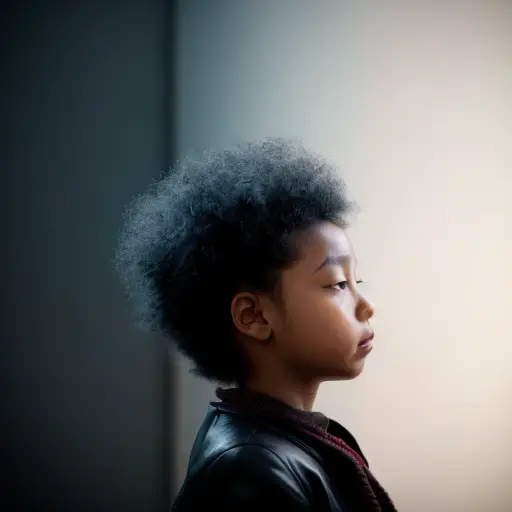Introduction to Abstract Thinking in Child Development: Unveiling the Cognitive Milestone
Welcome, dear readers, to the whimsical world of child development, where little minds embark on a journey of abstract thinking. Picture this: a tiny tot, armed with a vivid imagination and a sprinkle of curiosity, begins to unravel the mysteries of the intangible. Abstract thinking, my friends, is the magical key that unlocks the door to a realm beyond the concrete. It's like watching a mini Picasso paint with invisible colors or witnessing a mini Einstein ponder the mysteries of the universe. As these young prodigies navigate the cognitive milestone of abstract thinking, prepare to be amazed by their ability to grasp concepts that exist only in the realm of imagination. So, grab your thinking caps and join me on this delightful adventure as we explore the wondrous world of abstract thinking in child development.
The Emergence of Abstract Thinking: Exploring the Developmental Stages in Children
An interesting fact about abstract thinking in child development is that it typically emerges around the age of 11 or 12, marking a significant cognitive milestone. Before this stage, children primarily think in concrete terms and struggle to understand abstract concepts such as love, justice, or time. However, as their brains mature, they gradually develop the ability to think abstractly, allowing them to engage in hypothetical reasoning, understand metaphors, and grasp complex ideas beyond what they can directly see or experience. This cognitive leap opens up new realms of understanding and enables children to navigate the complexities of the world with greater depth and sophistication.
Welcome, fellow adventurers, to the captivating realm of child development, where the emergence of abstract thinking takes center stage. Picture this: a young mind, brimming with curiosity and a dash of wonder, embarks on a journey of cognitive growth. Abstract thinking, my friends, is the enchanting process through which children begin to grasp concepts that transcend the tangible world. It's like witnessing a tiny philosopher ponder the complexities of life or observing a budding artist create masterpieces with thoughts alone. As these young explorers traverse the developmental stages of abstract thinking, prepare to be astounded by their ability to connect the dots, imagine the unimaginable, and unravel the mysteries of the abstract. So, fasten your seatbelts and join me on this exhilarating expedition as we delve into the captivating world of abstract thinking in child development.
The Importance of Abstract Thinking in Problem-Solving and Creativity: Nurturing Cognitive Skills

Welcome, dear readers, to a thought-provoking exploration of the importance of abstract thinking in the realms of problem-solving and creativity. Abstract thinking, in the context of child development, is a cognitive skill that allows young minds to transcend the confines of the concrete and venture into the realm of imagination. It is through abstract thinking that children can tackle complex problems, think critically, and come up with innovative solutions that defy the boundaries of logic. By nurturing this cognitive skill, we empower children to become creative problem-solvers, equipped with the ability to think outside the box and approach challenges from unique perspectives.
When children engage in abstract thinking, they are not bound by the limitations of what they can see or touch. Instead, they are able to conceptualize ideas, make connections between seemingly unrelated concepts, and explore possibilities beyond the obvious. This ability to think abstractly is a crucial foundation for problem-solving, as it allows children to analyze situations from multiple angles, consider alternative solutions, and anticipate potential outcomes. By encouraging and fostering abstract thinking in child development, we are equipping young minds with the tools they need to navigate the complexities of the world and tackle challenges with confidence and creativity.
Moreover, abstract thinking plays a pivotal role in nurturing creativity. It is through abstract thinking that children can unleash their imagination, explore new ideas, and express themselves in unique and innovative ways. By encouraging children to think abstractly, we are fostering their ability to generate original ideas, think creatively, and approach tasks with a fresh perspective. This not only enhances their artistic endeavors but also cultivates their problem-solving skills, as creativity often goes hand in hand with finding unconventional solutions to complex problems.
In conclusion, the importance of abstract thinking in child development cannot be overstated. By nurturing this cognitive skill, we empower children to become adept problem-solvers and creative thinkers. Through abstract thinking, children can transcend the confines of the concrete, explore the realm of imagination, and approach challenges with a fresh perspective. So, let us embrace and encourage abstract thinking in our young ones, for it is through this cognitive milestone that they will unlock the doors to endless possibilities and pave the way for a future filled with innovation and creativity.
Fostering Abstract Thinking in Children: Strategies for Parents and Educators
Fun fact: Did you know that abstract thinking, a key milestone in child development, allows children to think beyond the concrete and explore imaginative possibilities? This ability typically emerges around the age of 11 or 12, enabling kids to understand metaphors, symbolism, and hypothetical scenarios. So, next time you witness a child engaging in imaginative play or coming up with creative solutions, you can appreciate their blossoming abstract thinking skills!
Dear parents and educators, let us embark on a journey of fostering abstract thinking in our children, for it is through this cognitive skill that young minds can unlock their full potential. To nurture abstract thinking, we must provide opportunities for children to explore and engage in imaginative play, where they can create their own worlds and make connections between different ideas. Encouraging open-ended questions and discussions can also stimulate abstract thinking, as it prompts children to think beyond the obvious and consider alternative perspectives. Additionally, exposing children to a wide range of experiences, such as art, music, and nature, can inspire abstract thinking and ignite their creativity. By implementing these strategies, we can cultivate the abstract thinking skills necessary for our children to thrive in problem-solving, creativity, and critical thinking.
